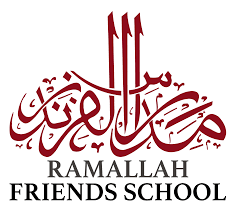A Thanksgiving Tragedy and Its Roots

“My friends and I are almost unable to focus on ourselves because of what’s happening back [in Gaza]. It’s like experiencing this makes us even more connected to what’s happening.” Three friends, all graduates of Ramallah Friends School reunited in Vermont where they were, as President Biden wrote “simply spending Thanksgiving with family and loved ones;” and were shot in a hate crime. Yet, they are focused on the struggle that faces and challenges friends in Palestine. Their commitment to peace has a direct connection to Quaker peacemaking. Yet, we know that peacemaking is a continuous process and it is perfectable with favor and practice.
Ramallah Friends School posted how the three young men were graduates of the private school in the West Bank “While we are relieved to know that they are alive, we remain uncertain about their condition and hold them in the light,” the school said. “We stand united in hope and support for their well-being during this challenging time.” Congressman Hakeem Jeffries encouraged people to “unequivocally denounce the startling rise of anti-Arab hate and Islamophobia in America. No one should ever be targeted for their ethnicity or religious affiliation in our country.”
Palestinian students Hisham Awartani, Tahseen Ali and Kenan Abdulhamid (Husam Zomlot/X)
Among F/friends it is evident that the legacy of our impact encompasses both admirable contributions and challenging contradictions. Friends must confront the complexities of their past, learn from them, and actively contribute to a pluralistic society that aligns with our core tenets of justice, equality, and peace. The journey involves not only acknowledging historical missteps but also shaping a future where Quaker principles guide actions on a global scale.
Because of a violent incident over Thanksgiving week, where three college students were attacked in Burlington, Vermont, connection between global conflicts, social media trends, and our SPICES as principles of a pluralistic society comes into sharper focus. The assailant, driven by ethnic prejudice, represents a manifestation of hate fueled by disturbing social media trends.
This incident also prompts an examination of violence, injustice, and their ripple effects on the broader society. It has complexities of Quaker moral ambition, colonialism, and patriarchy.
A Global Context: Beyond the Borders and Conflicts; What is OURS to do? Why? How?
While acknowledging conflicts like the current war in Palestine and numerous acts of terror, the focus shifts to the origin story of three Palestinian youth in Burlington. Here, a longstanding commitment to justice becomes relevant. The history of Quaker nonviolence.and emphasizing the patterns of ending violence and the trauma it creates, regardless of geographical boundaries calls us into community with integrity and understanding of long term needs.
Before any act of violence occurs, there exists a background of trauma, wounds, and conflicts. The stranger becomes a perceived danger through dehumanization, further fueling alienation. Conversely, humanizing each other diminishes conflict and decreases the likelihood of violence. Convincement and participation in the corporate body of Friends as a body and a community working for peace is one practice we follow to humanize and welcome friendship.

Friends in a classroom at Ramallah Friends school Photo Credit FCNL More info at www.rfs.edu.ps
Queries for discernment and exploration in Meetings:
What are our Roots of Separation from violence? Are we Building a Vocabulary of Exceptions?
Exploring the roots of separation, it becomes apparent that the distance between individuals is fueled by a vocabulary of exceptions. The “us vs. them” mentality hinders love, justice, equality and understanding, highlighting the need to recognize commonalities over differences.
What is our Understanding of Roots of Violence? Do we ignore or subvert our own stories of Trauma, Dehumanization, Alienation? Do we Accept or Dispute the Lived Experiences of Others?
Are we ready for truthtelling of Our History and Accountability on Boarding Schools or Beyond?
For Friends to uphold their role in promoting justice as a peace church, an exploration of our historical involvement, including boarding schools from Wabash to Ramallah, becomes imperative. By acknowledging past actions, Quakers can actively contribute to a more just and pluralistic society. What is our role today in peacemaking? Do we merit what has caused a disproportionately larger role of Friends in world politics? How do we test this measure?


Leave a Reply